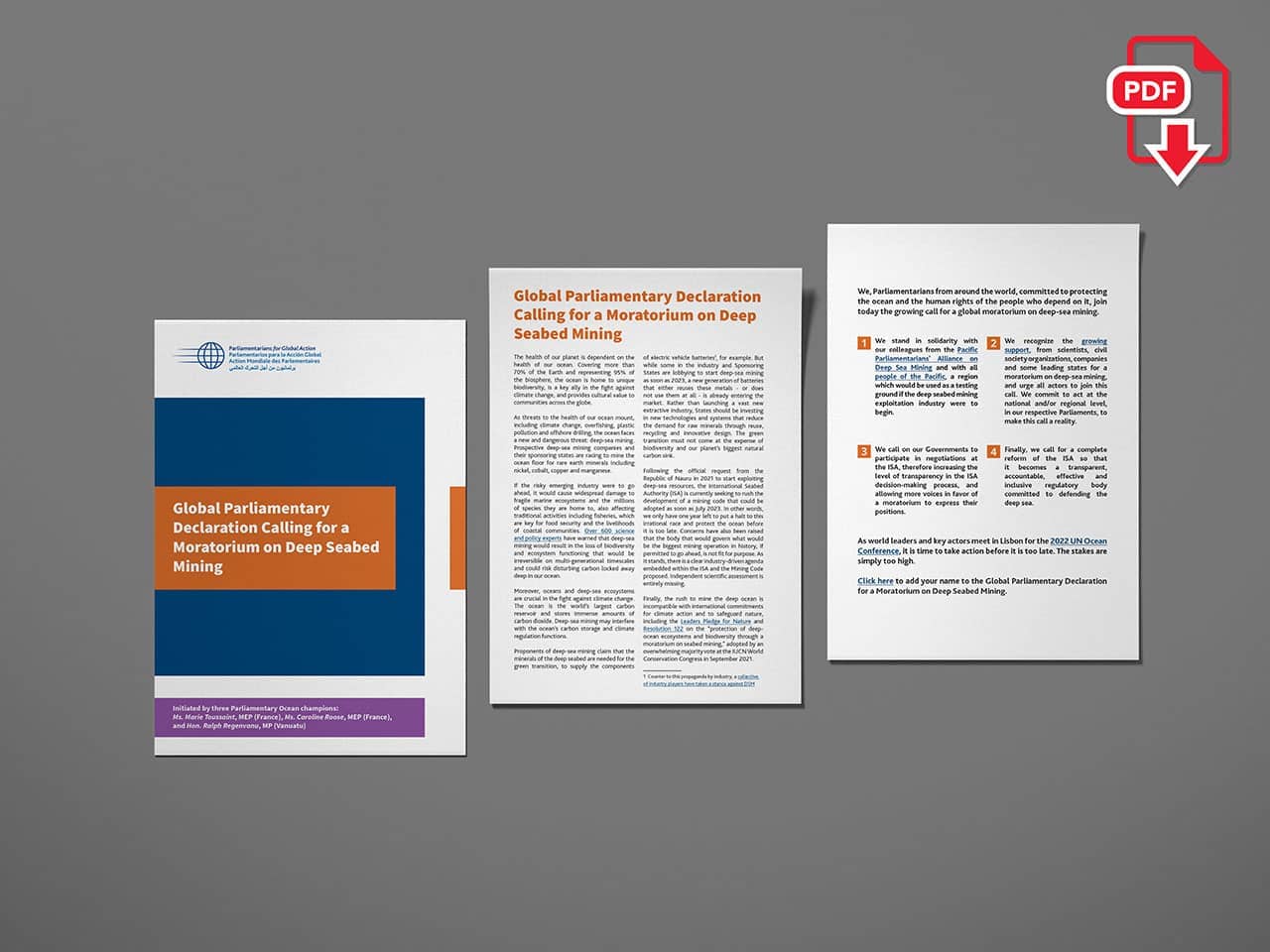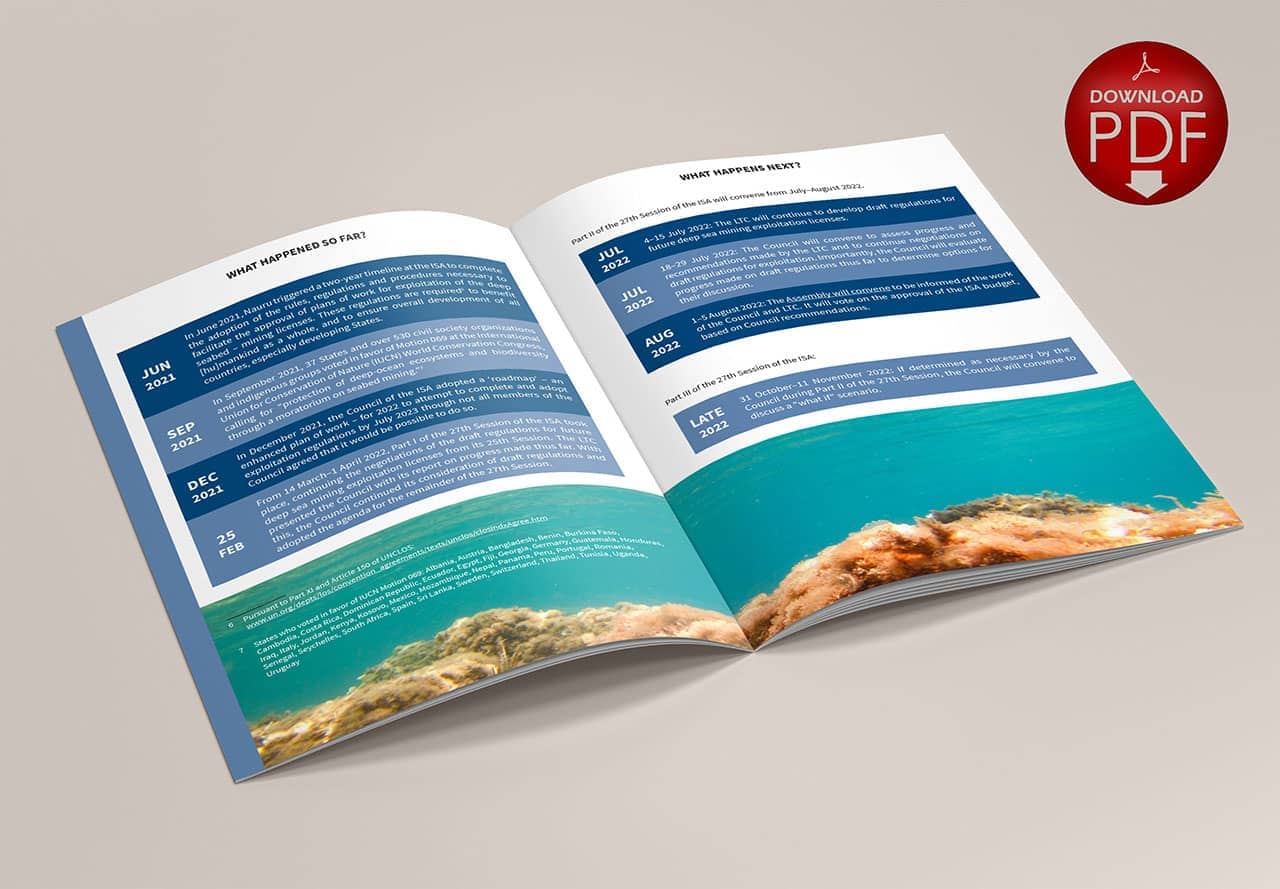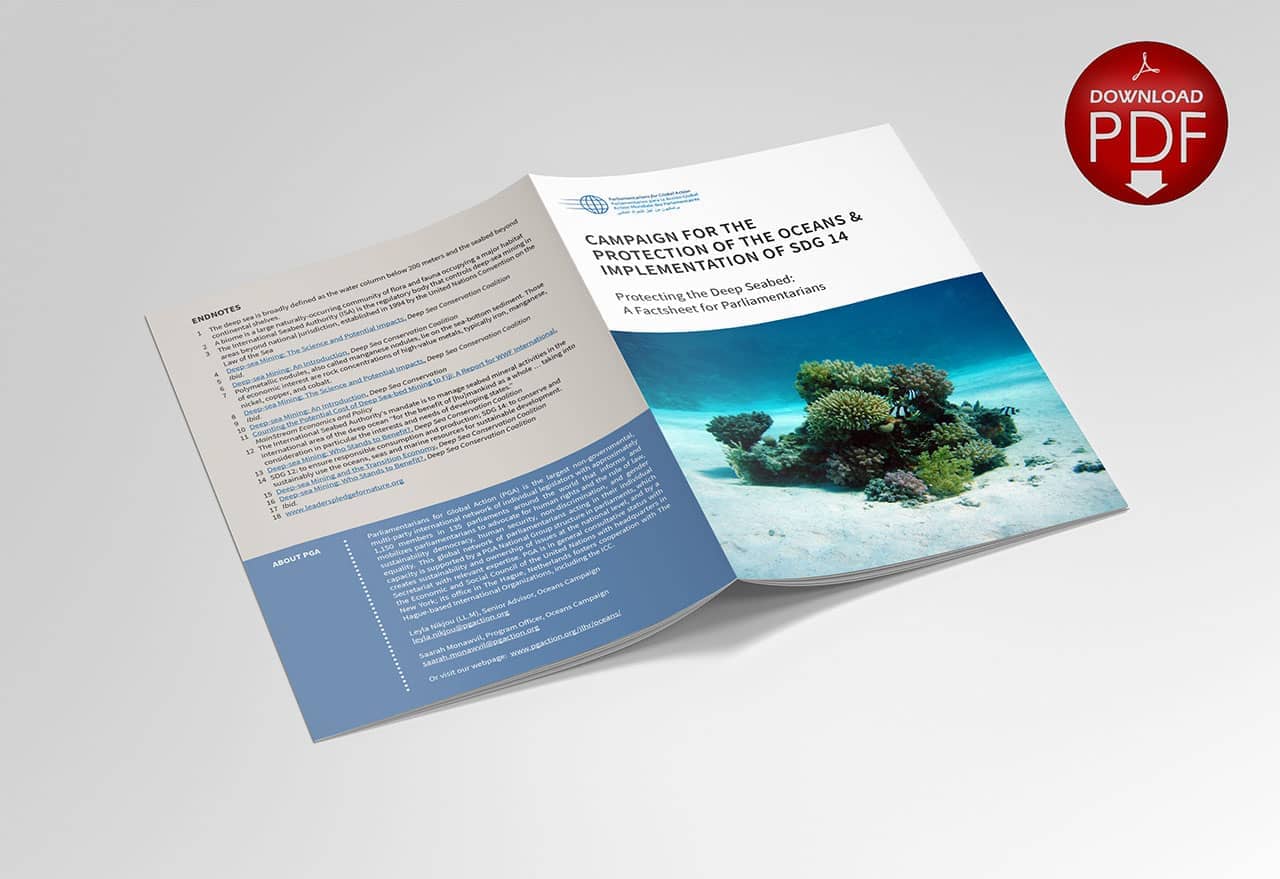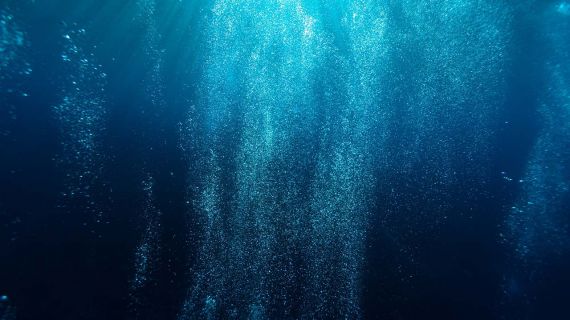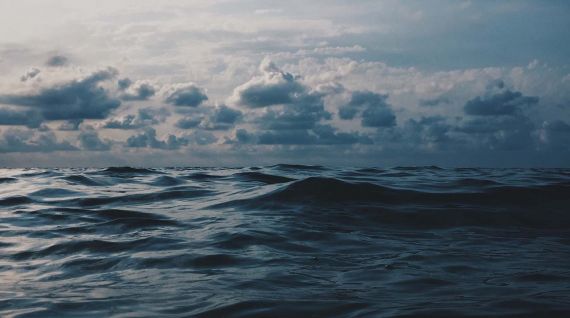Initiated by three Parliamentary Ocean champions Ms. Marie Toussaint, MEP (France), Ms. Caroline Roose, MEP (France), and Hon. Ralph Regenvanu, MP (Vanuatu) – this Global Parliamentary Declaration Calling for a Moratorium on Deep Seabed Mining is more urgent now than ever, as regulations to allow deep seabed mining may be adopted as soon as July 2023.
Through this Declaration, parliamentarians around the world are united in calling for a moratorium on deep seabed mining, adopting a precautionary approach for this common heritage of humankind, and the protection of the human rights for all people who depend on the Ocean.
The health of our planet is dependent on the health of our ocean. Covering more than 70% of the Earth and representing 95% of the biosphere, the ocean is home to unique biodiversity, is a key ally in the fight against climate change, and provides cultural value to communities across the globe.
As threats to the health of our ocean mount, including climate change, overfishing, plastic pollution and offshore drilling, the ocean faces a new and dangerous threat: deep-sea mining. Prospective deep-sea mining companies and their sponsoring states are racing to mine the ocean floor for rare earth minerals including nickel, cobalt, copper and manganese.
If the risky emerging industry were to go ahead, it would cause widespread damage to fragile marine ecosystems and the millions of species they are home to, also affecting traditional activities including fisheries, which are key for food security and the livelihoods of coastal communities. Over 600 science and policy experts have warned that deep-sea mining would result in the loss of biodiversity and ecosystem functioning that would be irreversible on multi-generational timescales and could risk disturbing carbon locked away deep in our ocean.
Moreover, oceans and deep-sea ecosystems are crucial in the fight against climate change. The ocean is the world's largest carbon reservoir and stores immense amounts of carbon dioxide. Deep-sea mining may interfere with the ocean’s carbon storage and climate regulation functions.
Proponents of deep-sea mining claim that the minerals of the deep seabed are needed for the green transition, to supply the components of electric vehicle batteries1, for example. But while some in the industry and Sponsoring States are lobbying to start deep-sea mining as soon as 2023, a new generation of batteries that either reuses these metals - or does not use them at all - is already entering the market. Rather than launching a vast new extractive industry, States should be investing in new technologies and systems that reduce the demand for raw minerals through reuse, recycling and innovative design. The green transition must not come at the expense of biodiversity and our planet’s biggest natural carbon sink.
Following the official request from the Republic of Nauru in 2021 to start exploiting deep-sea resources, the International Seabed Authority (ISA) is currently seeking to rush the development of a mining code that could be adopted as soon as July 2023. In other words, we only have one year left to put a halt to this irrational race and protect the ocean before it is too late. Concerns have also been raised that the body that would govern what would be the biggest mining operation in history, if permitted to go ahead, is not fit for purpose. As it stands, there is a clear industry-driven agenda embedded within the ISA and the Mining Code proposed. Independent scientific assessment is entirely missing.
Finally, the rush to mine the deep ocean is incompatible with international commitments for climate action and to safeguard nature, including the Leaders Pledge for Nature and Resolution 122 on the “protection of deep-ocean ecosystems and biodiversity through a moratorium on seabed mining,” adopted by an overwhelming majority vote at the IUCN World Conservation Congress in September 2021.
We, Parliamentarians from around the world, committed to protecting the ocean and the human rights of the people who depend on it, join today the growing call for a global moratorium on deep-sea mining.
- We stand in solidarity with our colleagues from the Pacific Parliamentarians’ Alliance on Deep Sea Mining and with all people of the Pacific, a region which would be used as a testing ground if the deep seabed mining exploitation industry were to begin.
- We recognize the growing support, from scientists, civil society organizations, companies and some leading states for a moratorium on deep-sea mining, and urge all actors to join this call. We commit to act at the national and/or regional level, in our respective Parliaments, to make this call a reality.
- We call on our Governments to participate in negotiations at the ISA, therefore increasing the level of transparency in the ISA decision-making process, and allowing more voices in favor of a moratorium to express their positions.
- Finally, we call for a complete reform of the ISA so that it becomes a transparent, accountable, effective and inclusive regulatory body committed to defending the deep sea.
As world leaders and key actors meet in Lisbon for the 2022 UN Ocean Conference, it is time to take action before it is too late. The stakes are simply too high.
___

